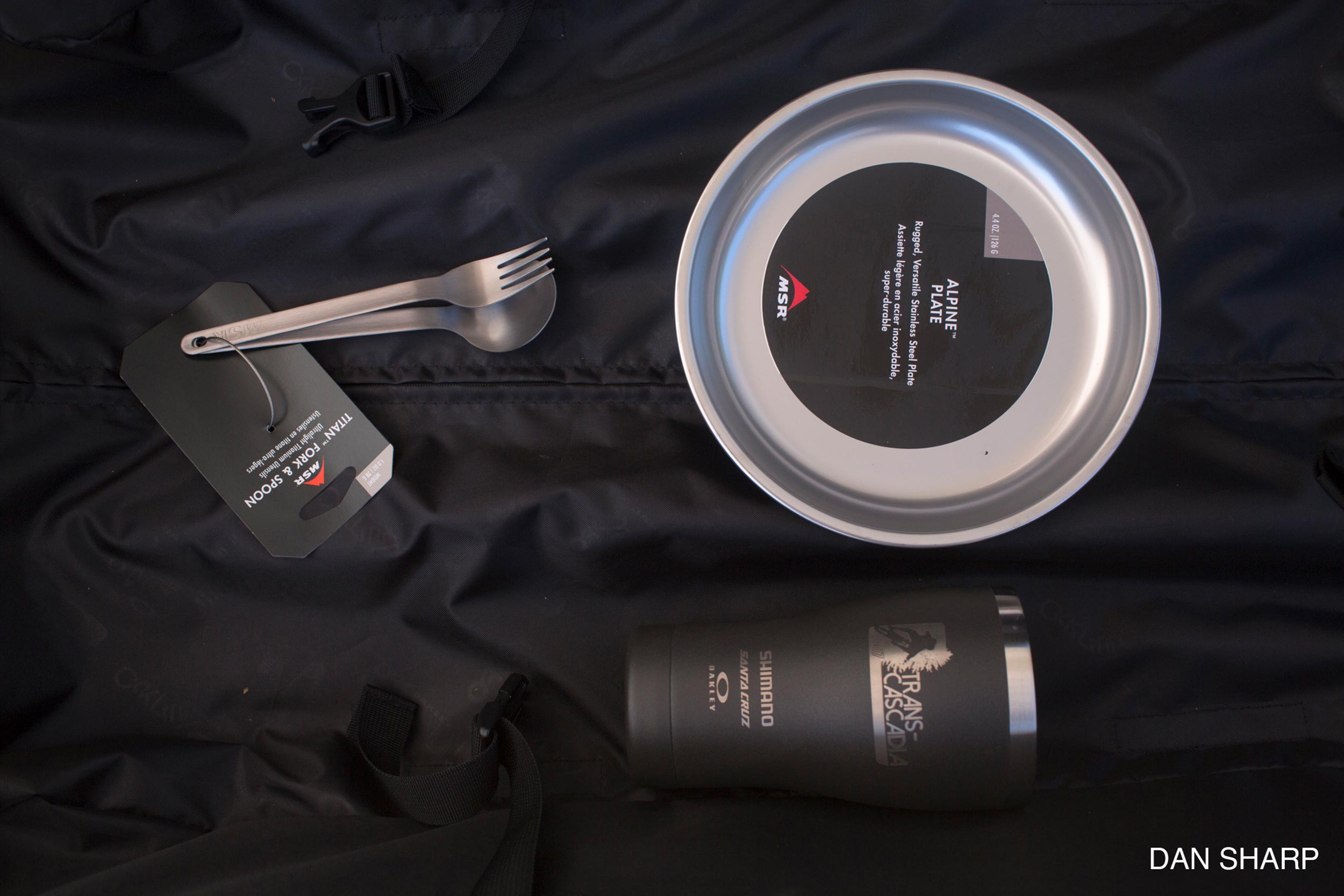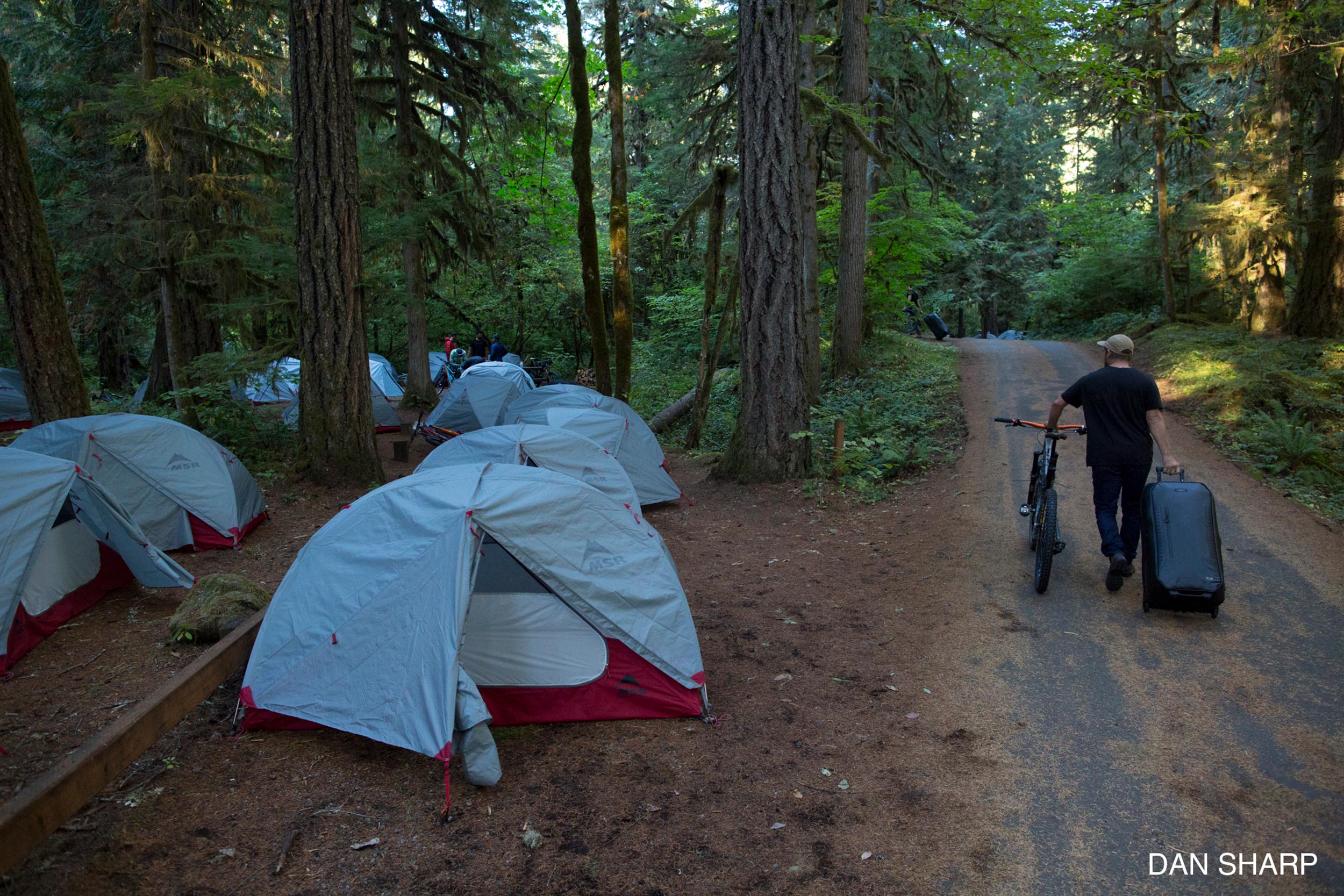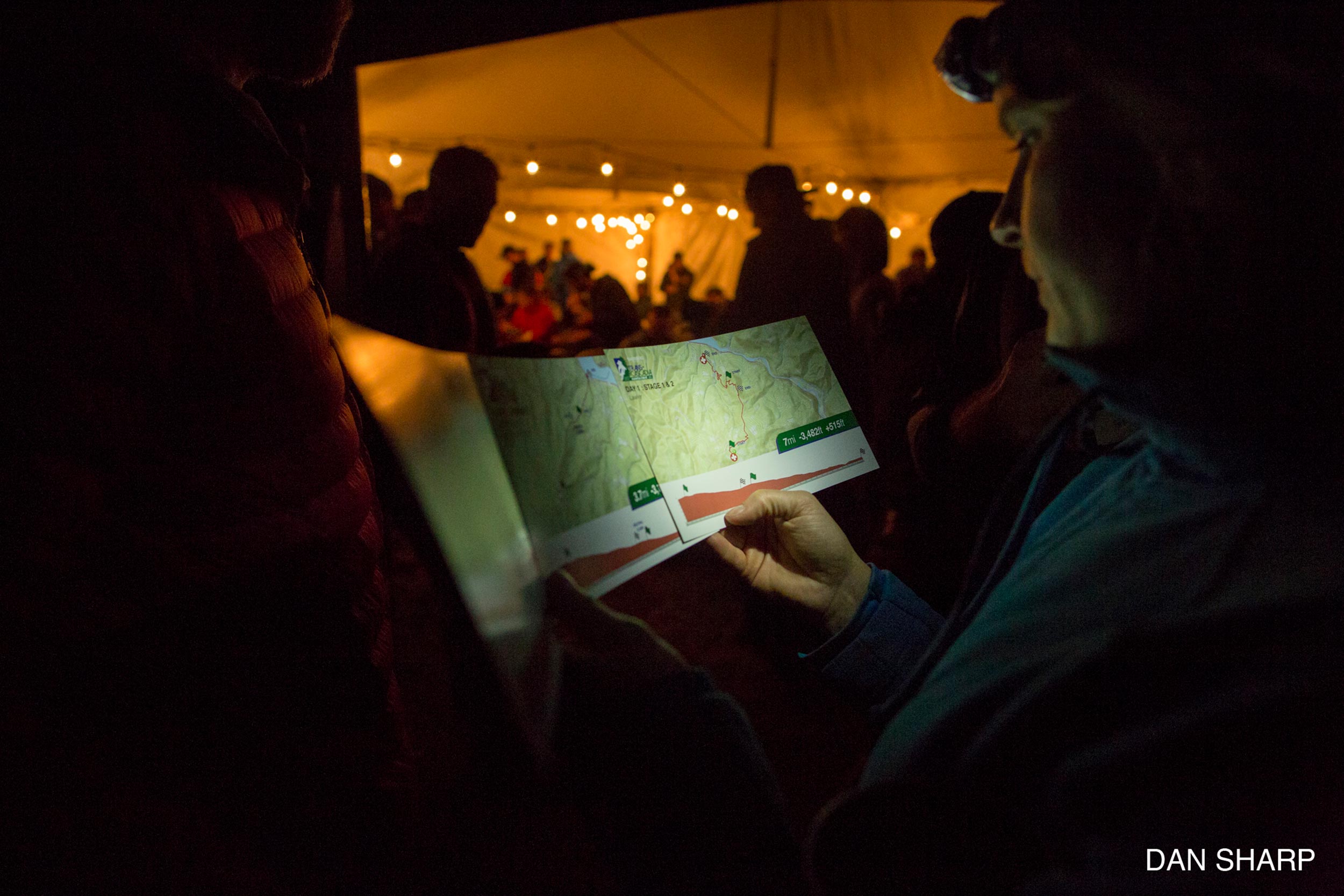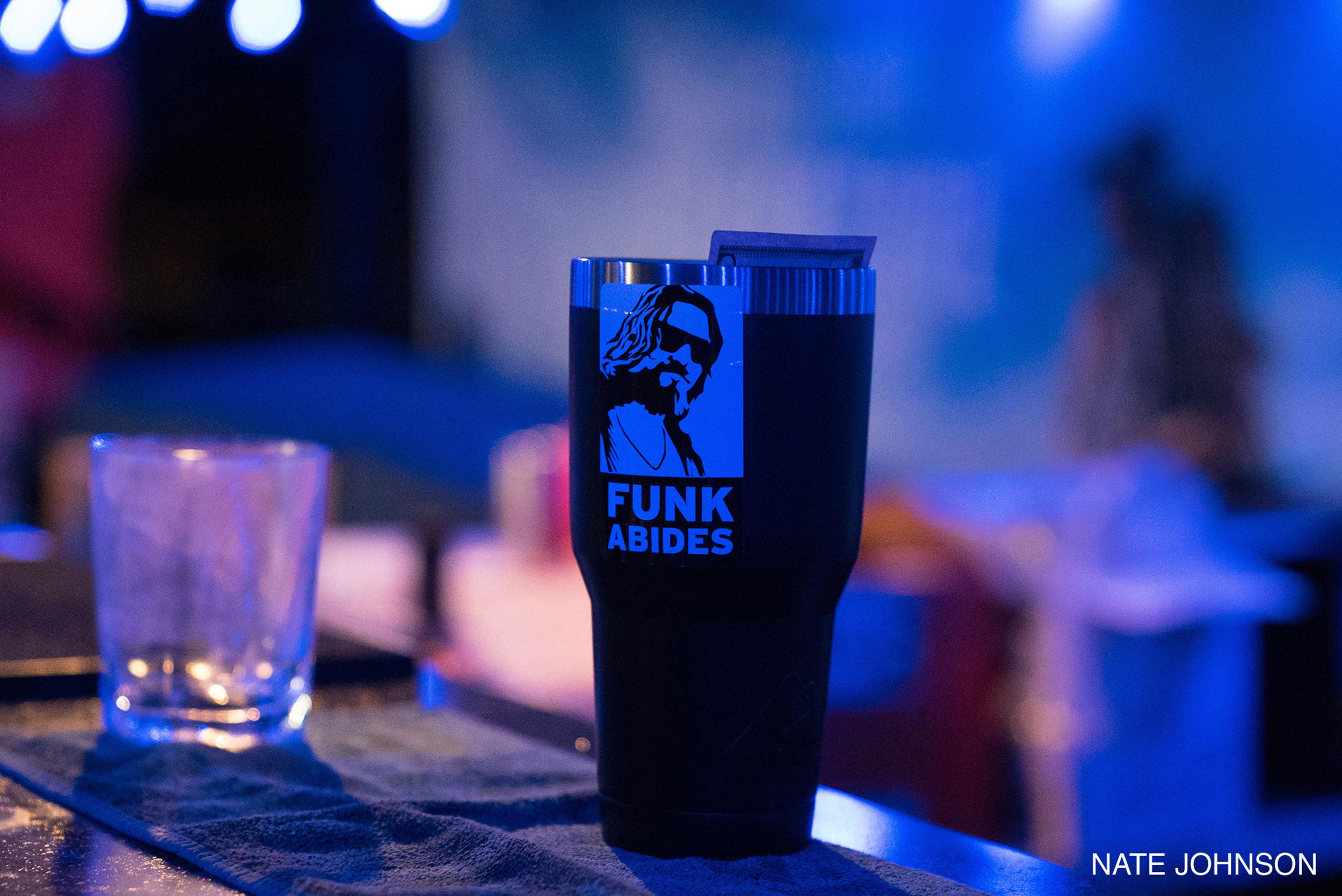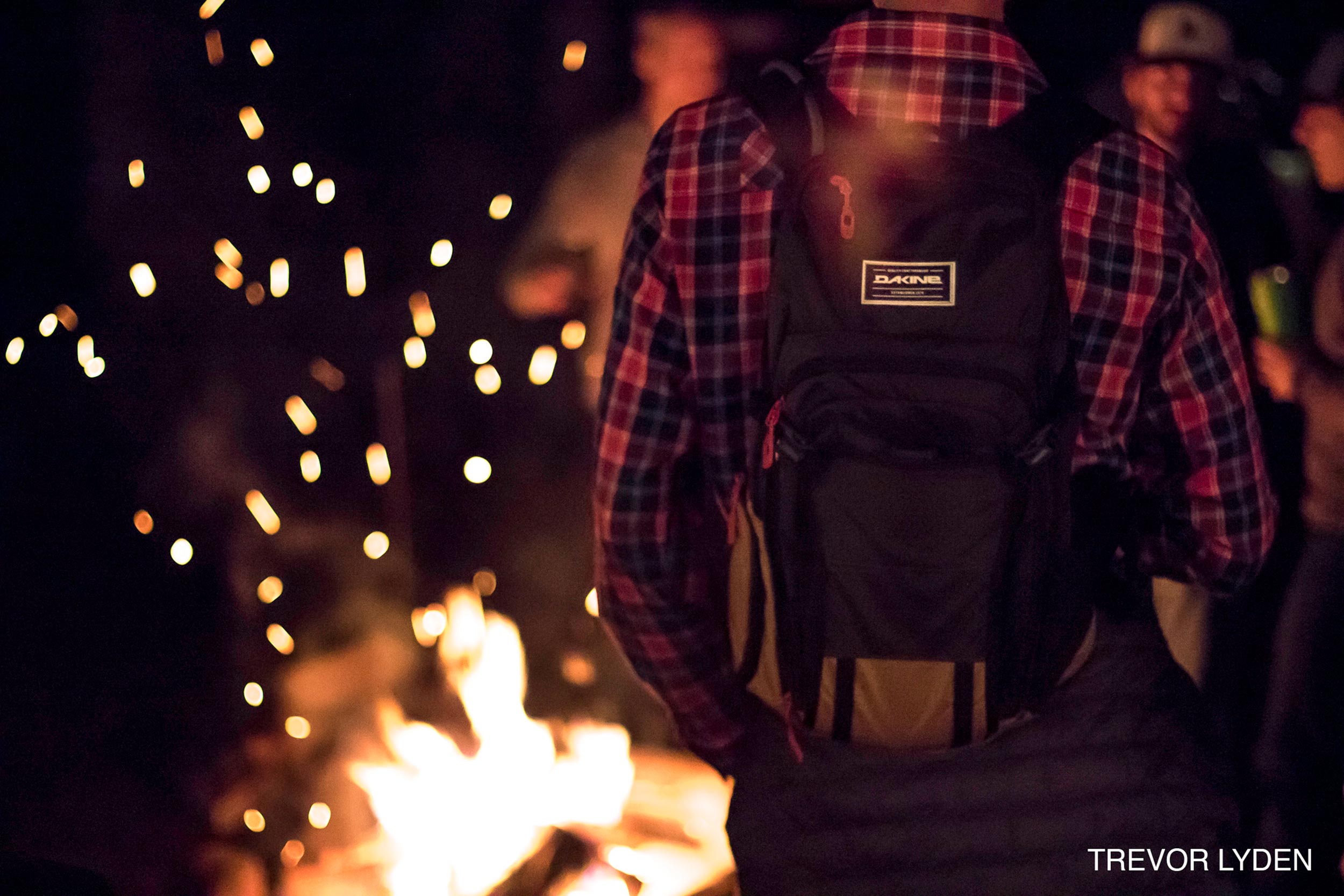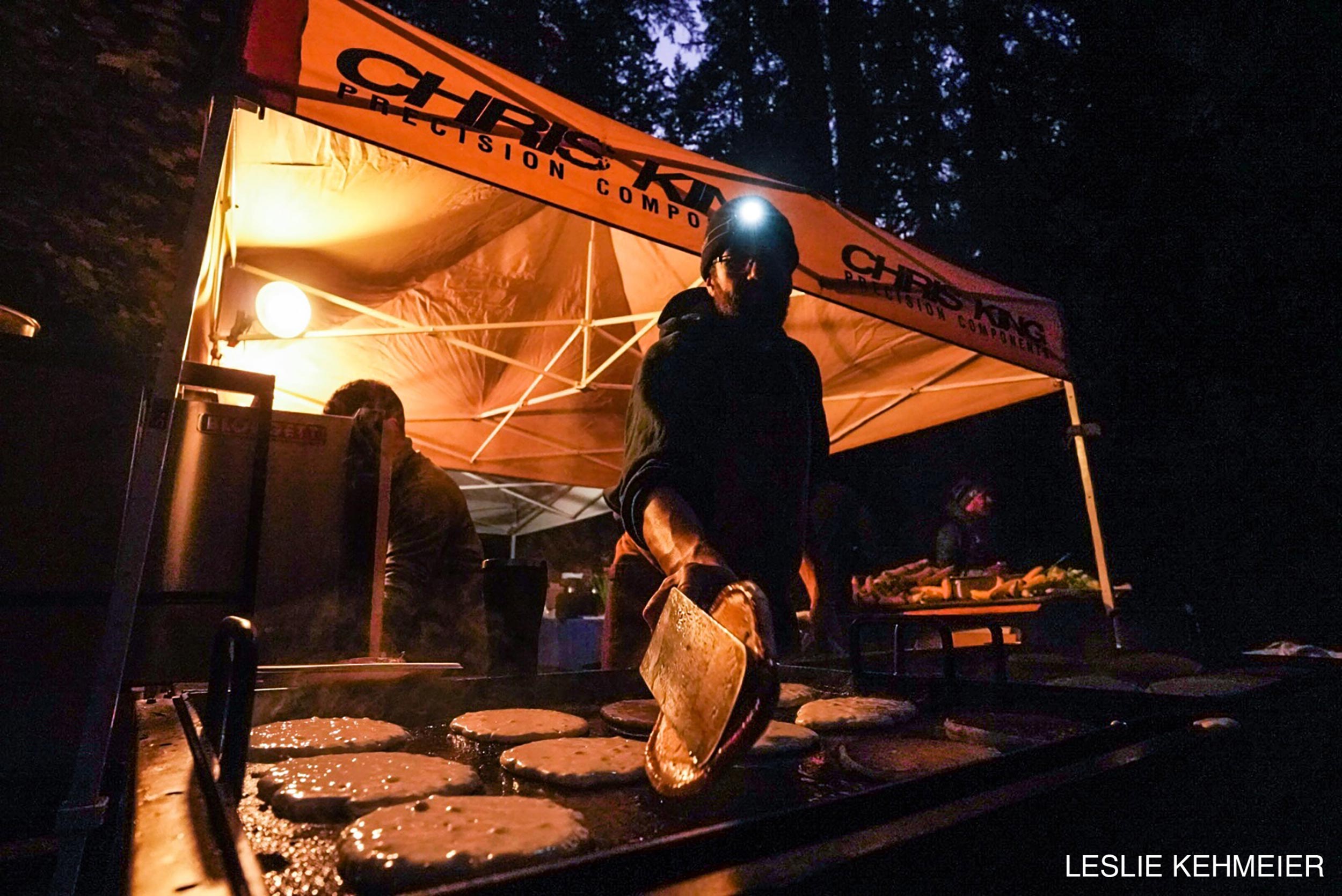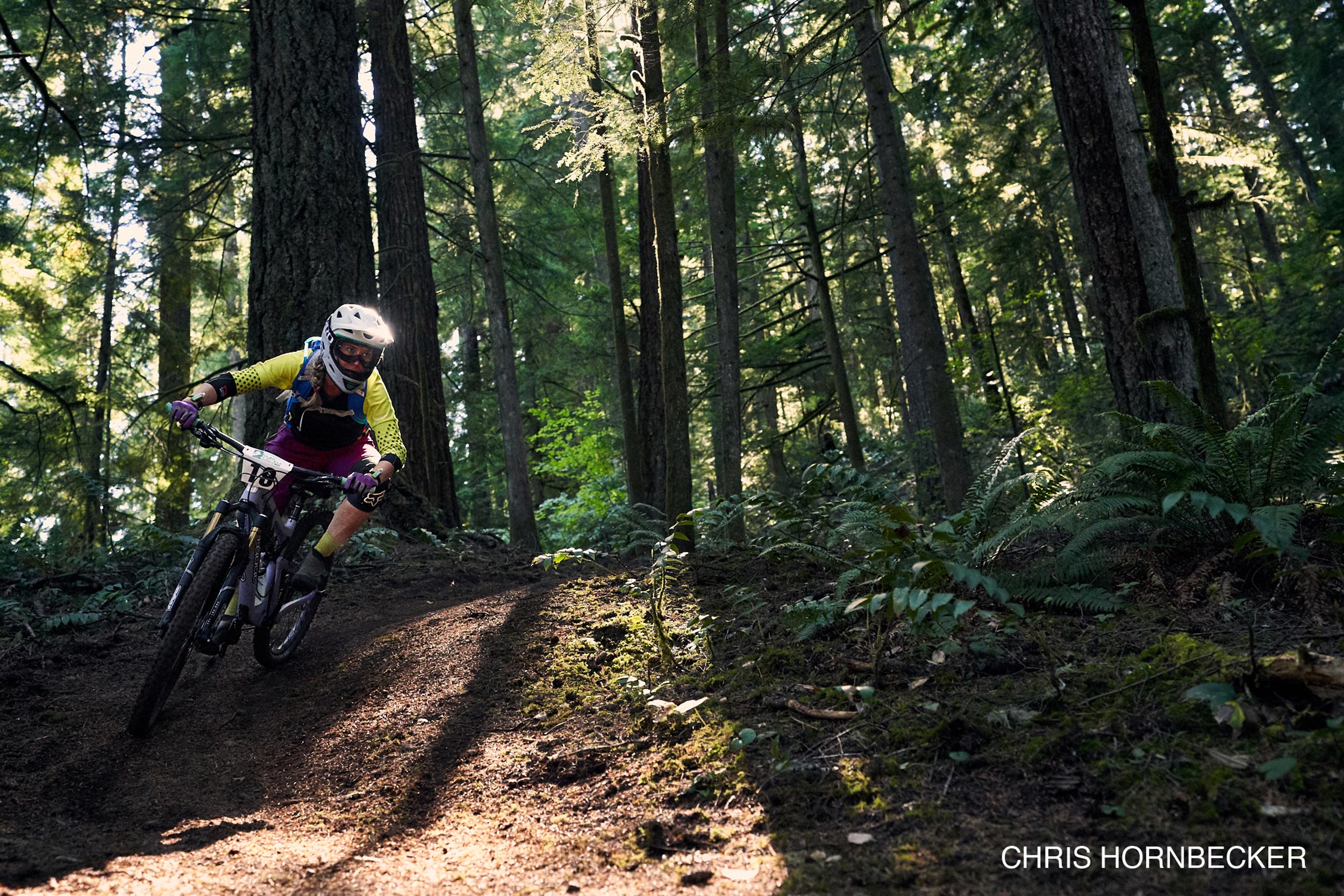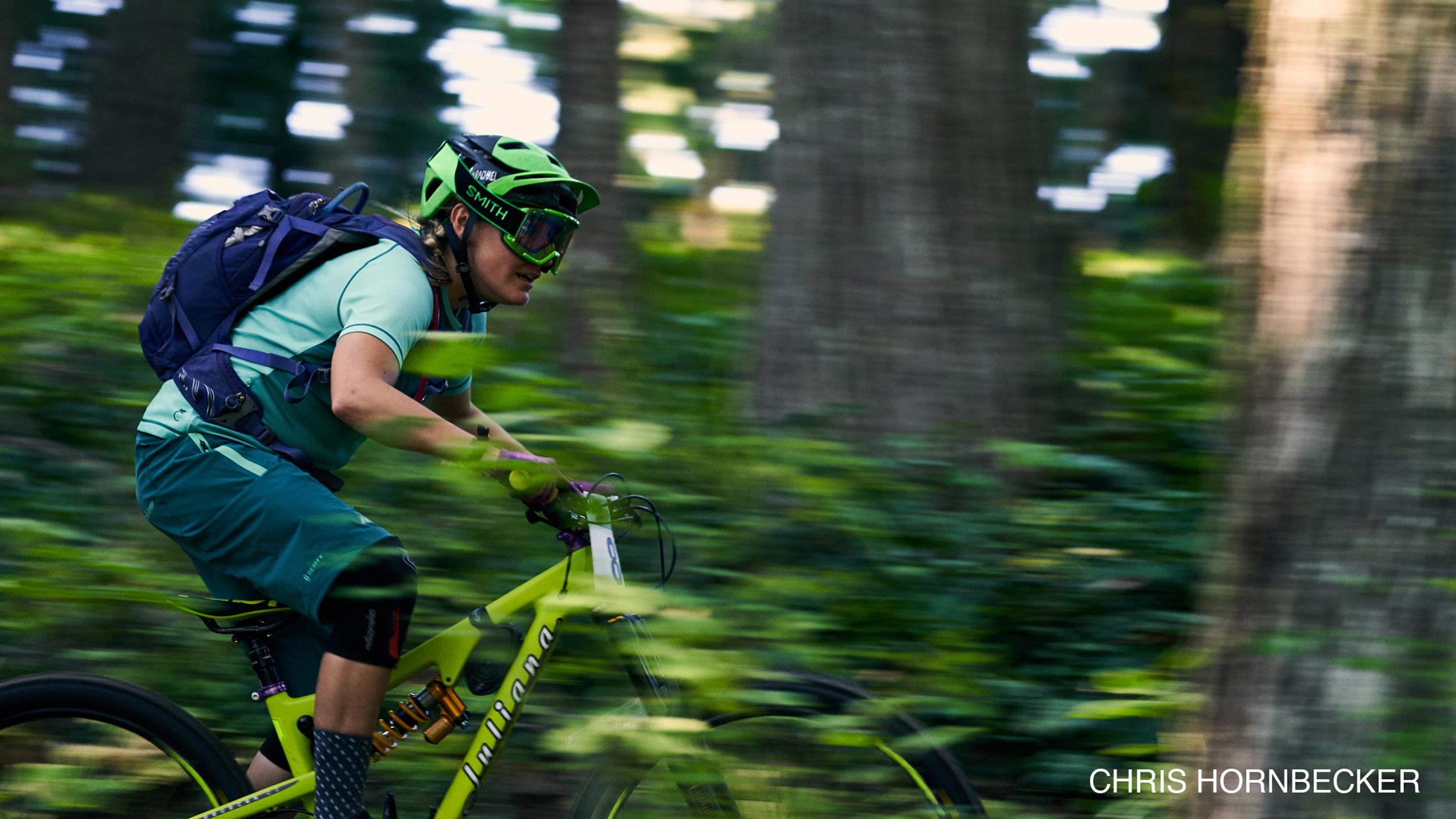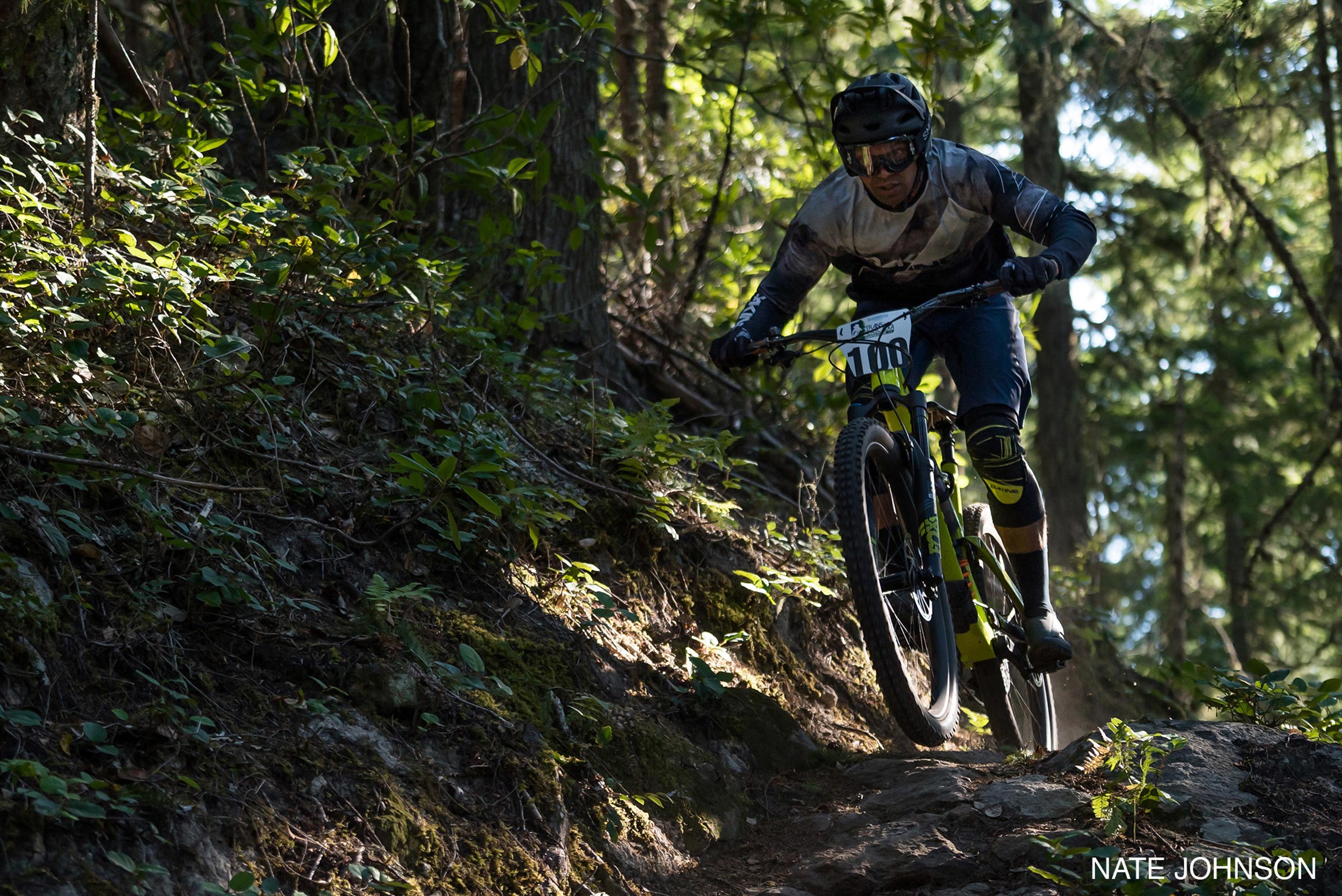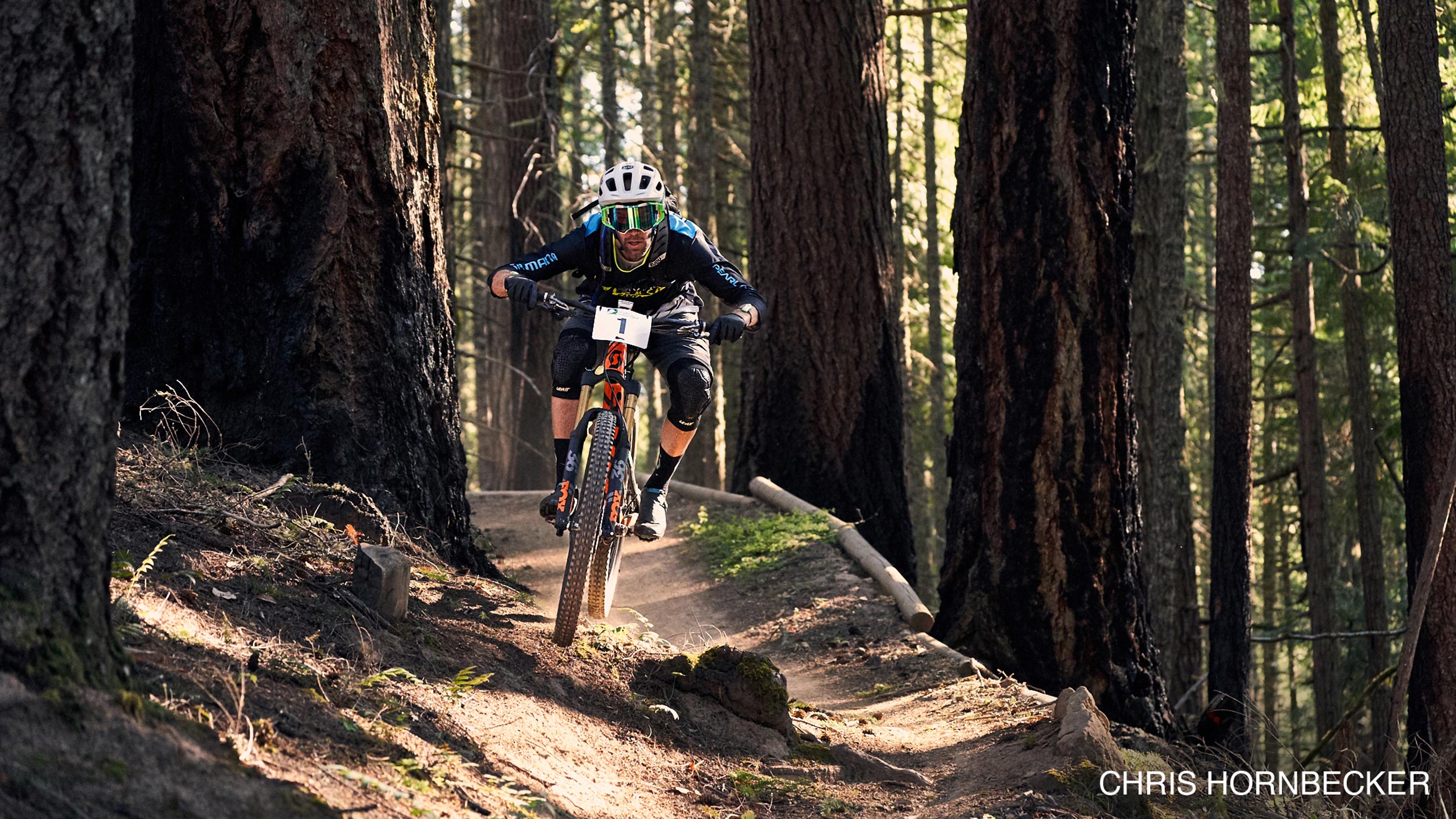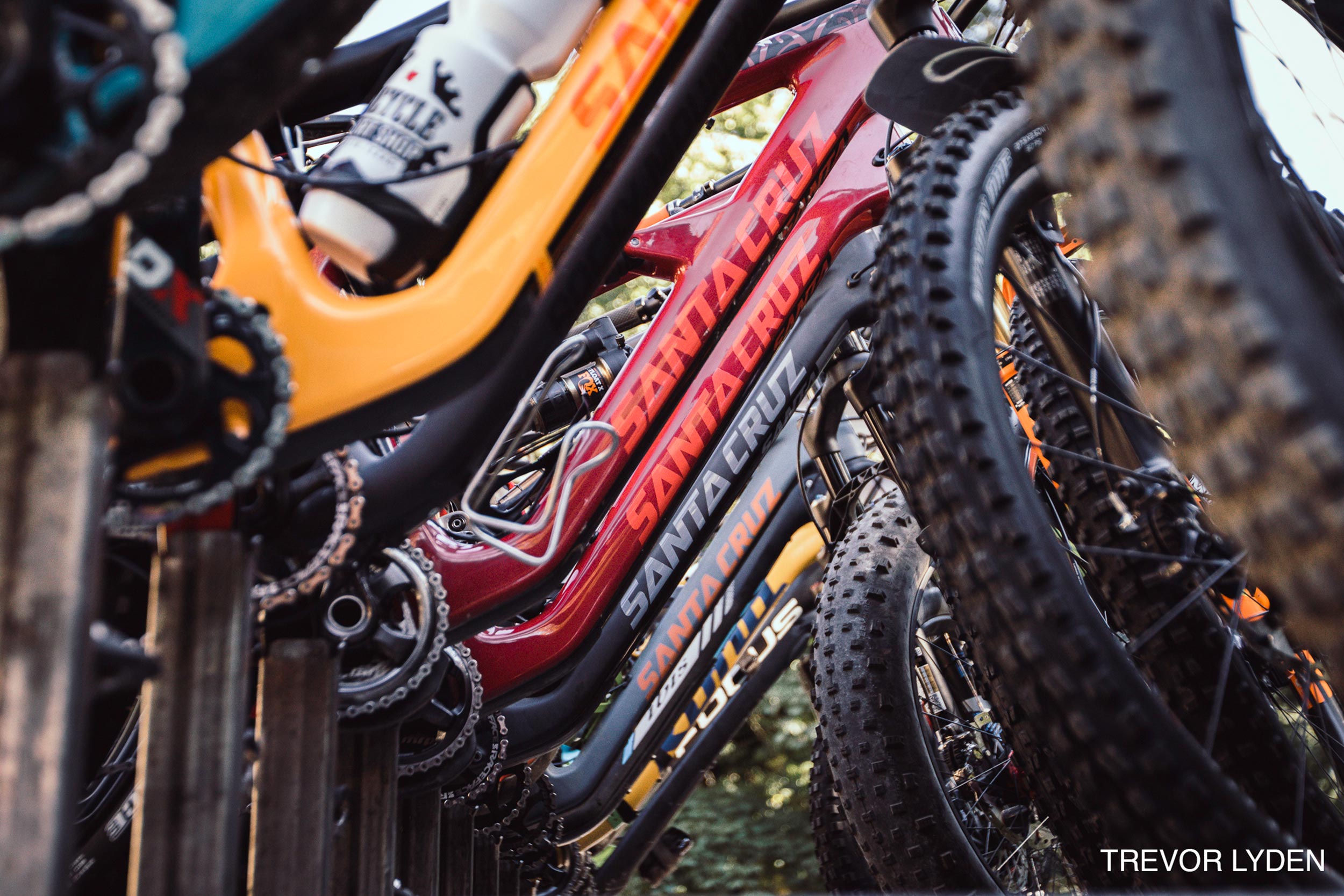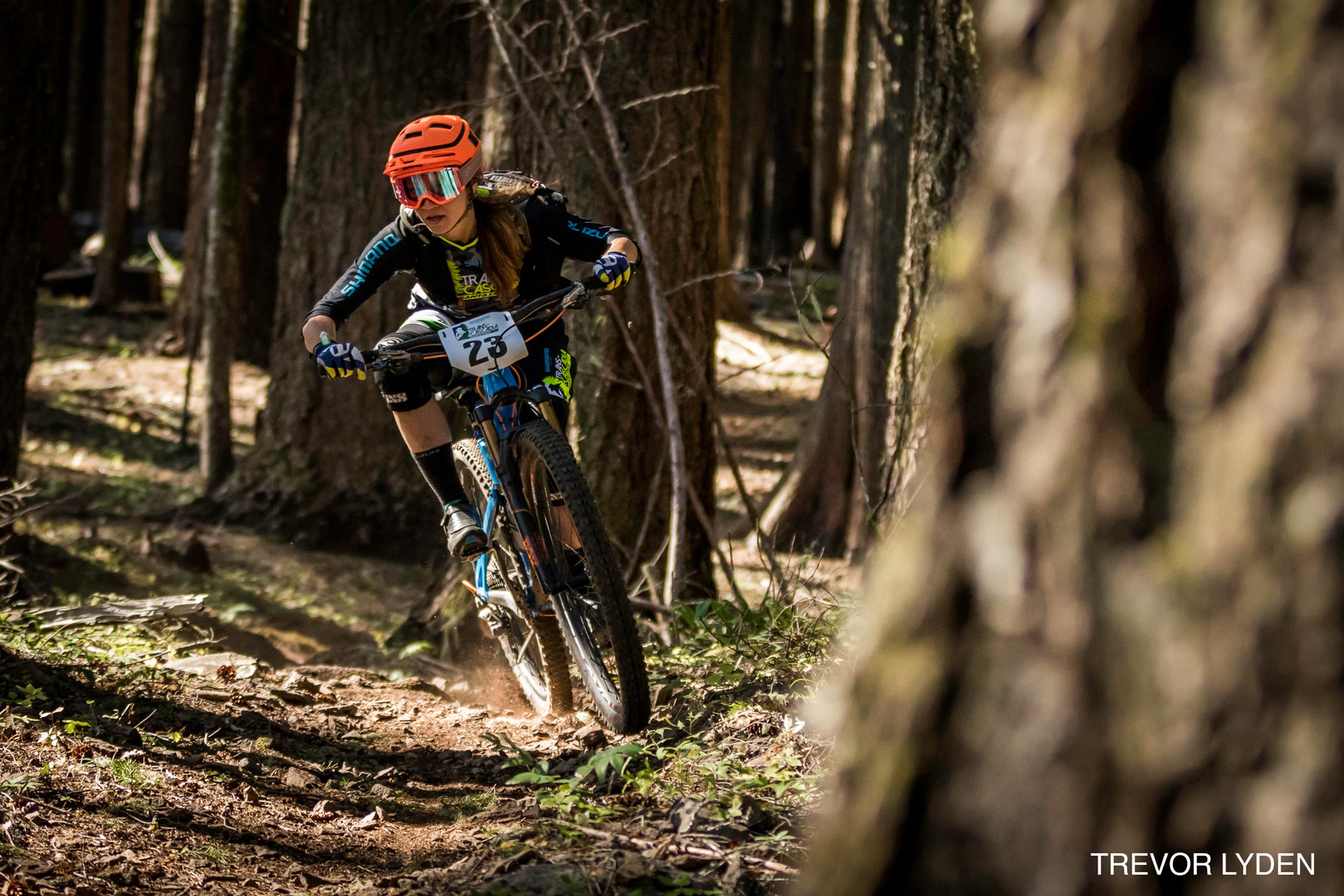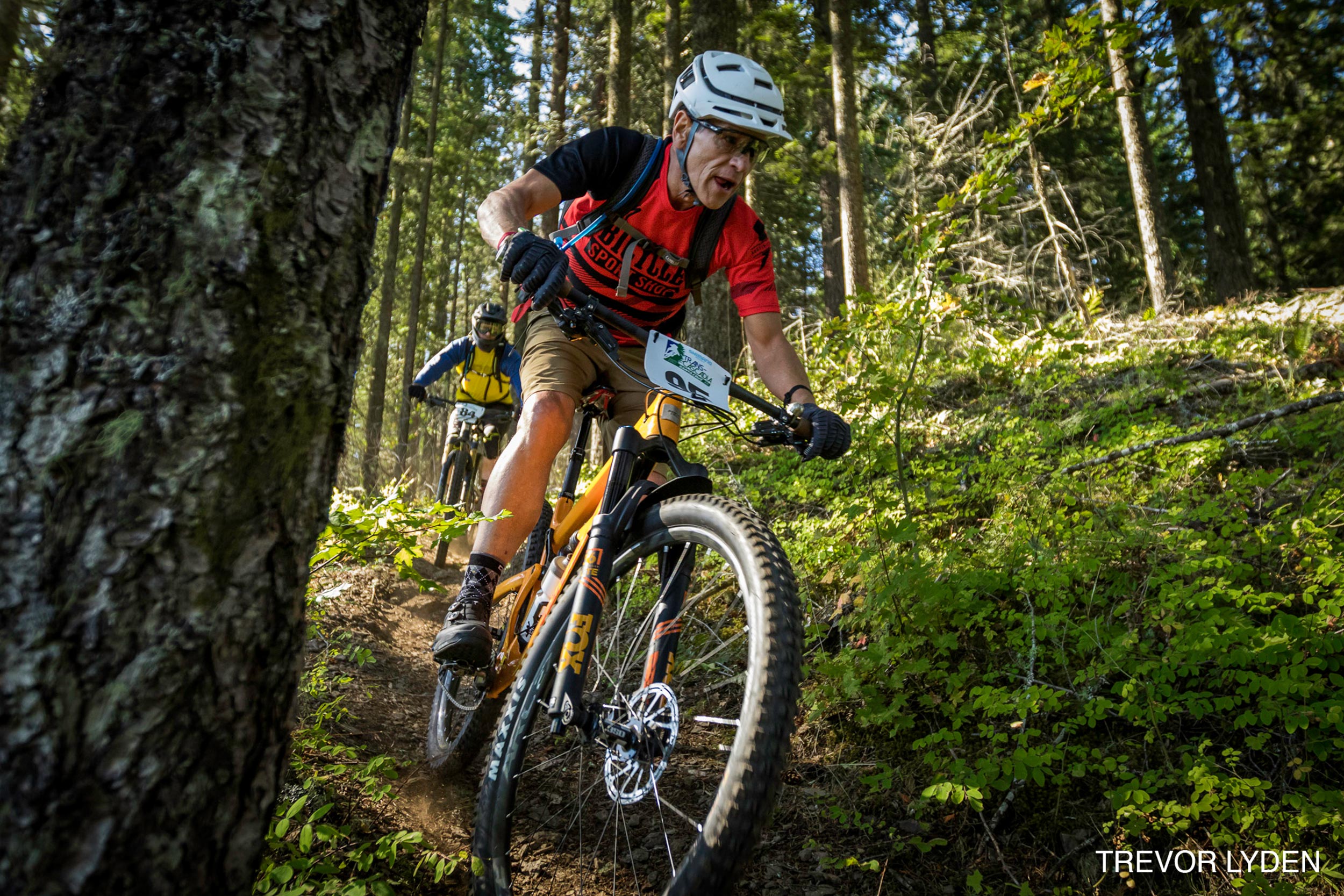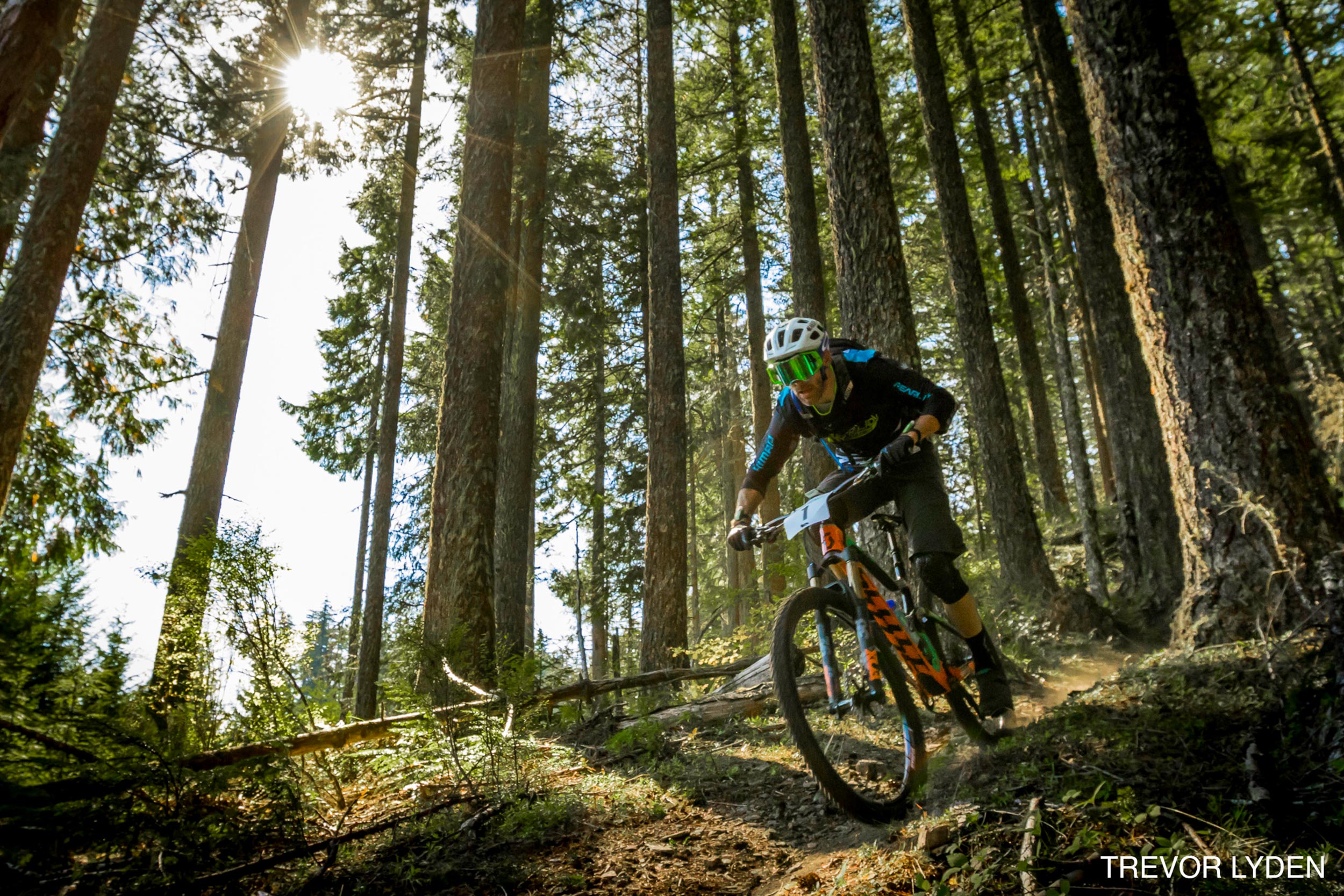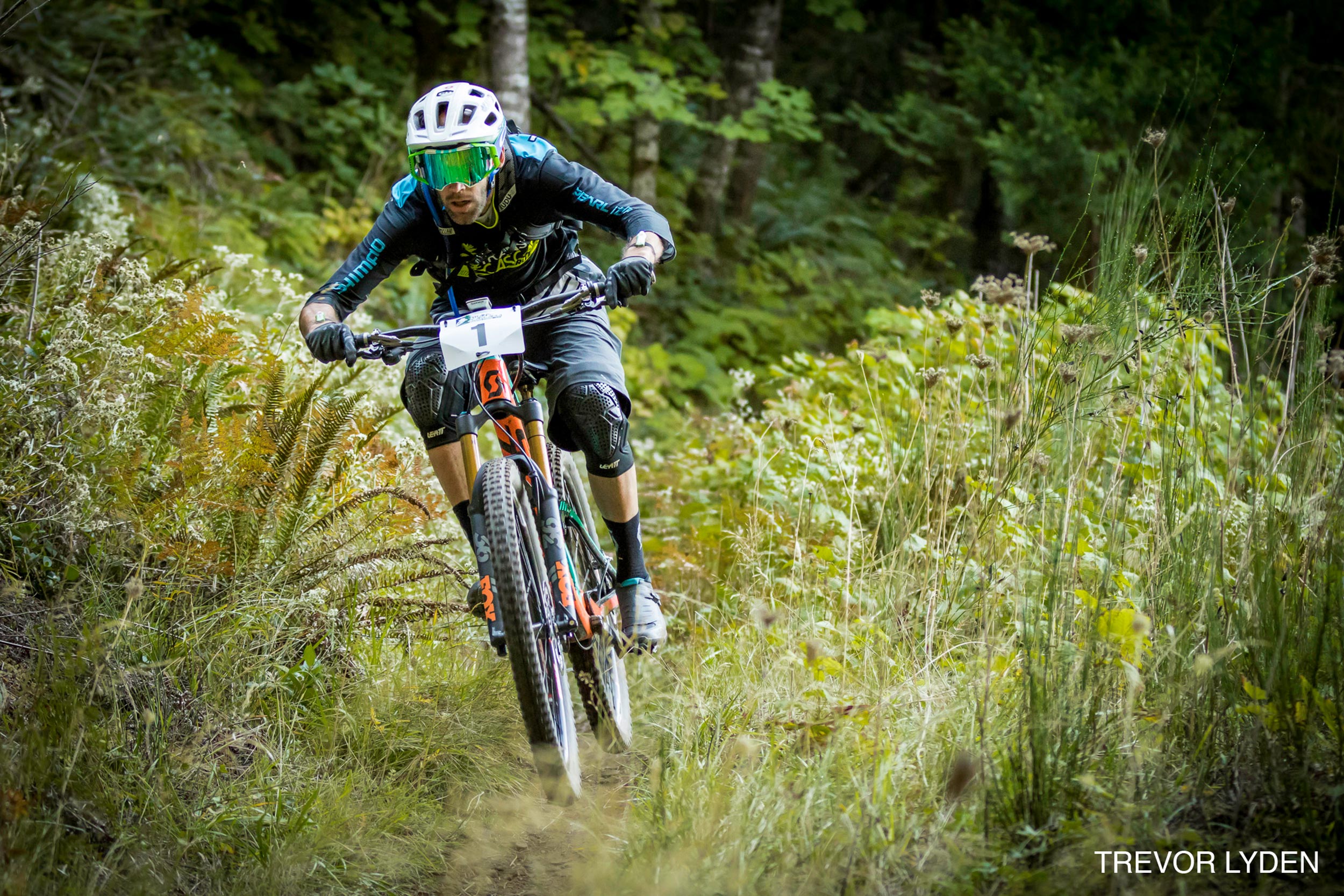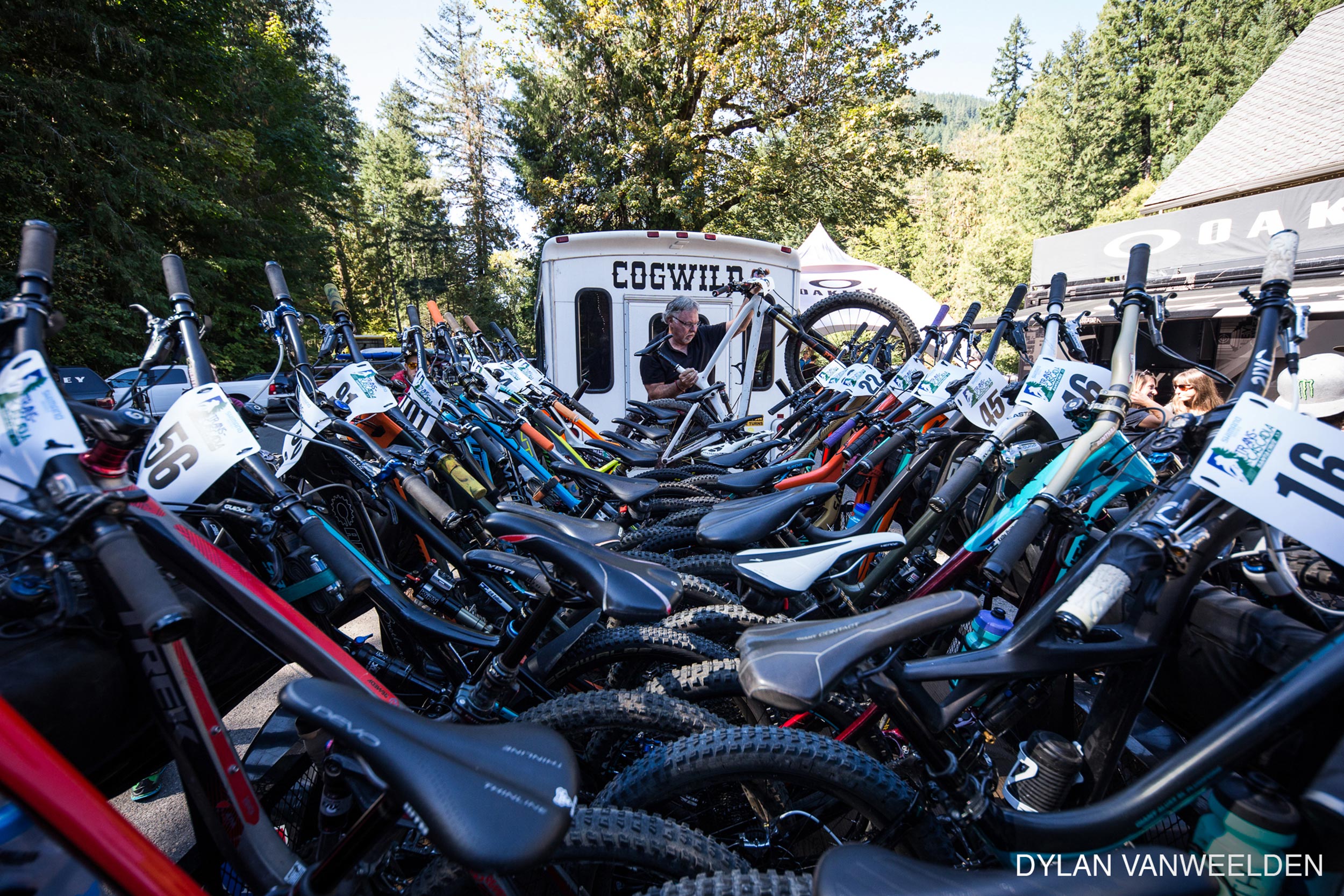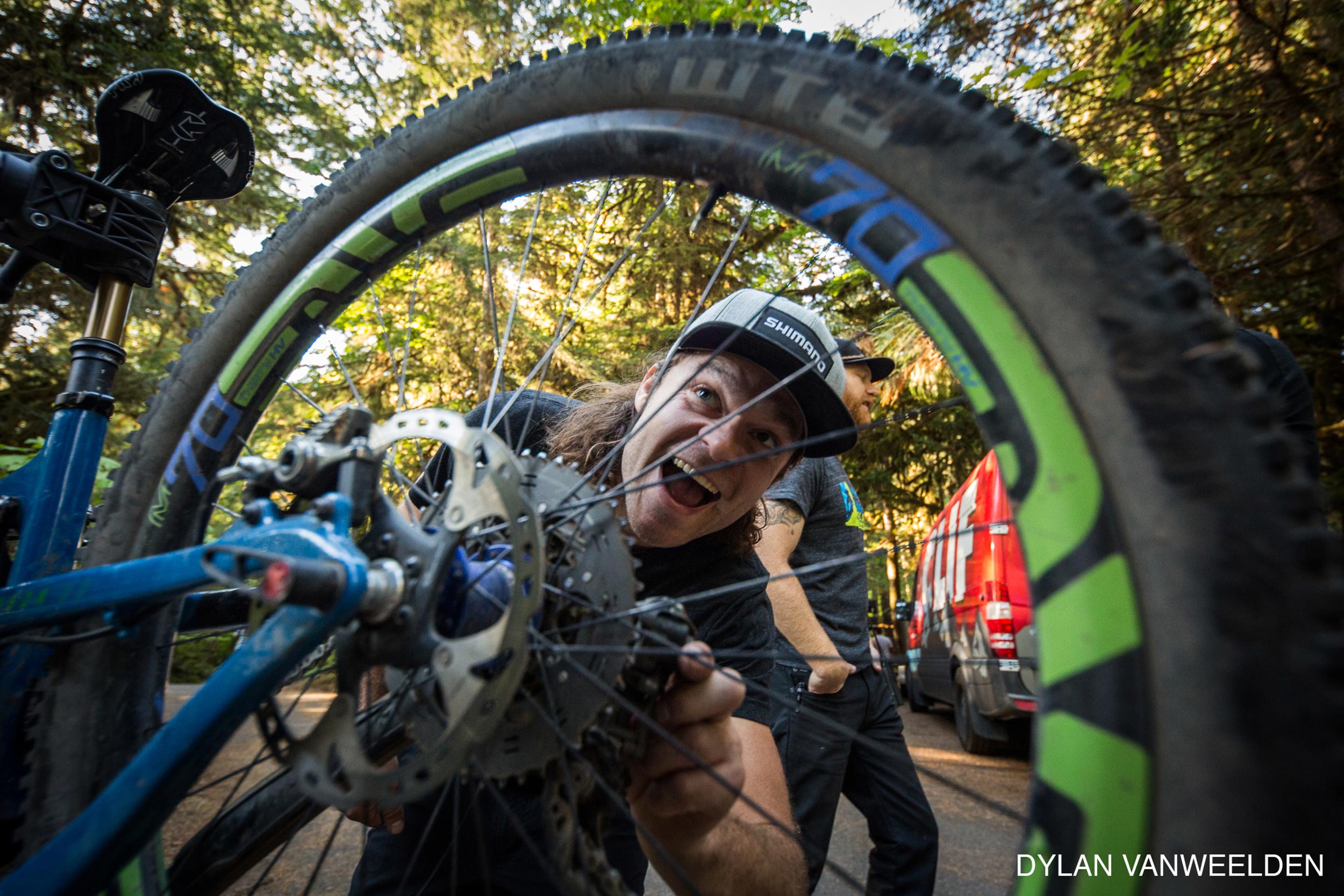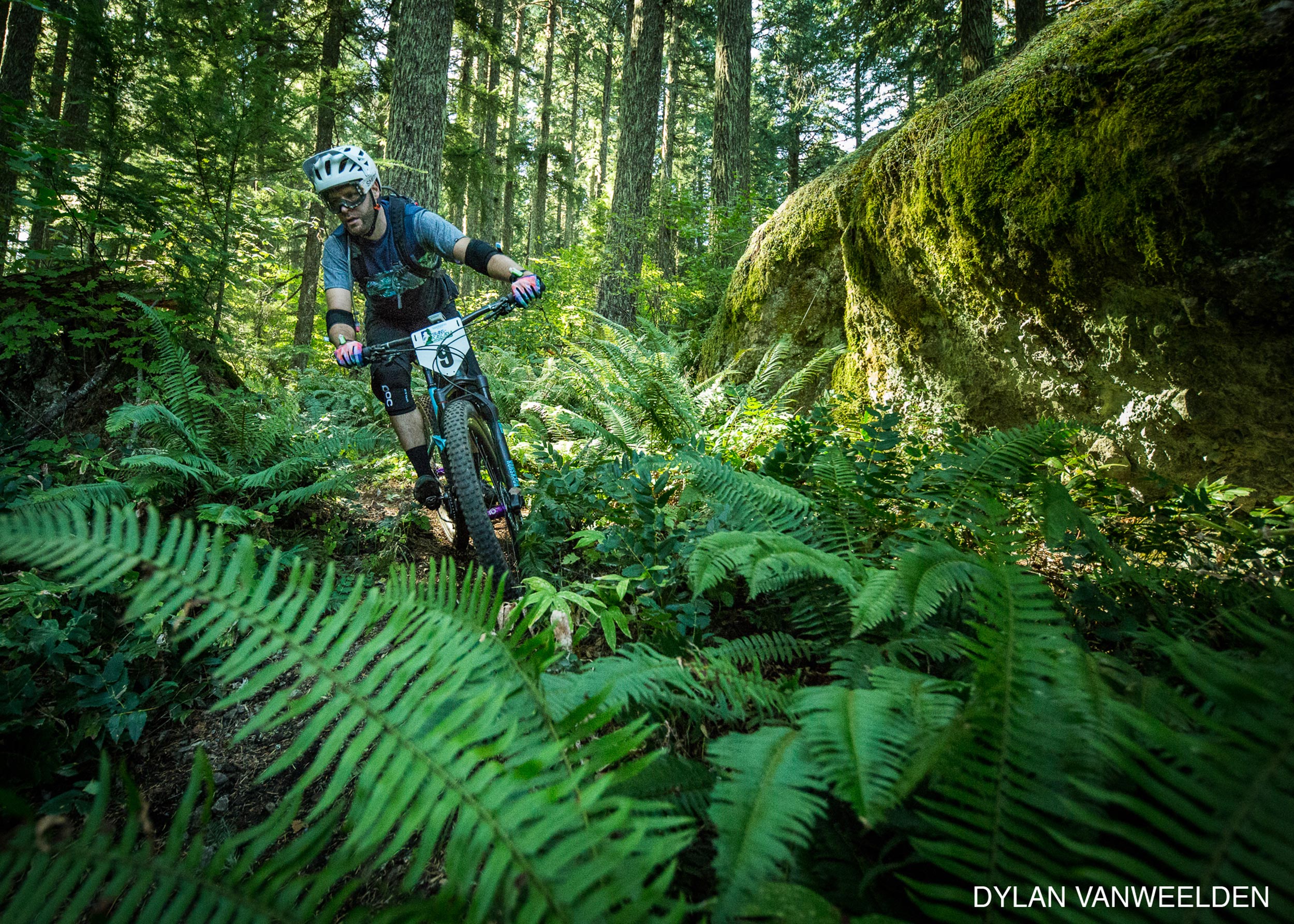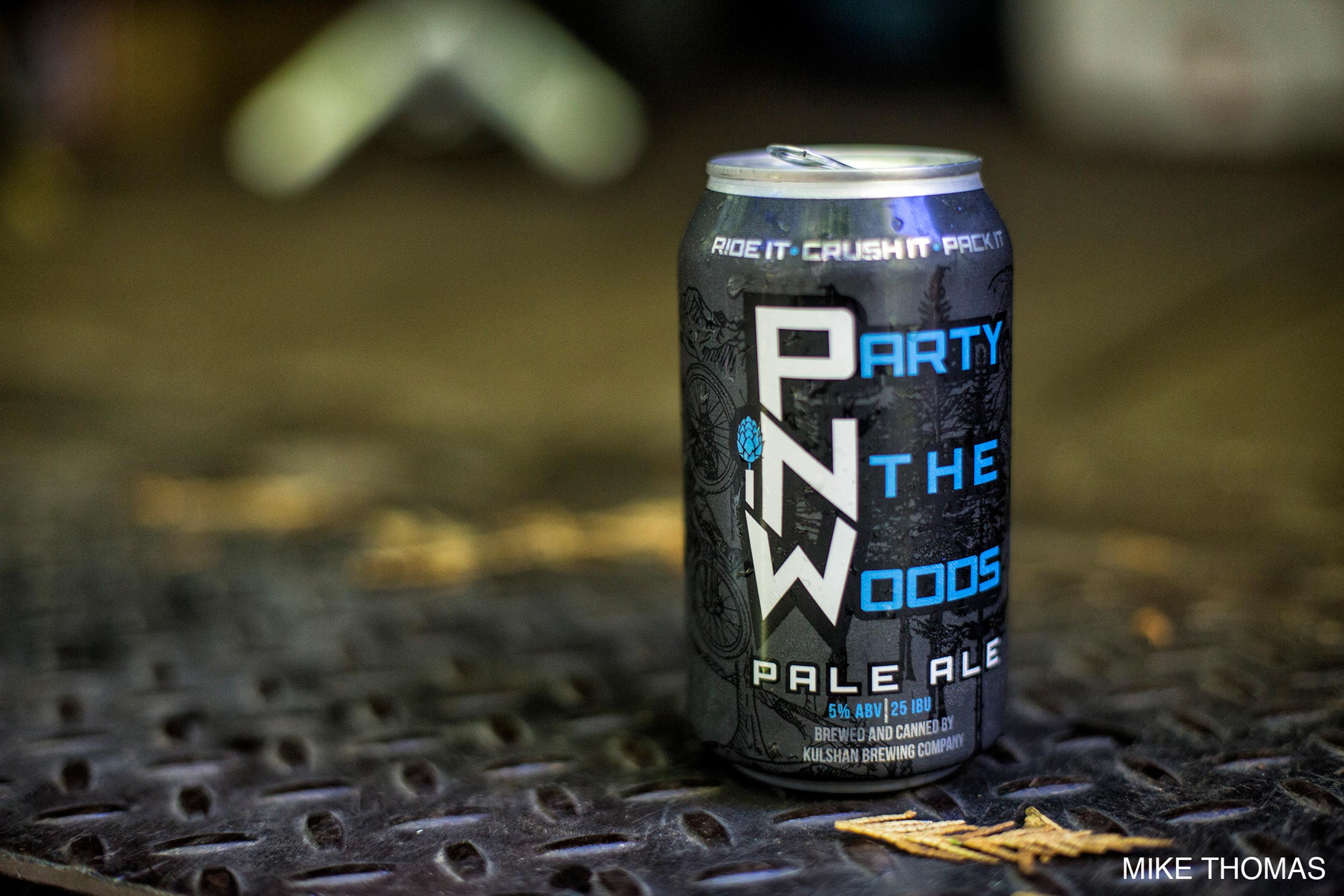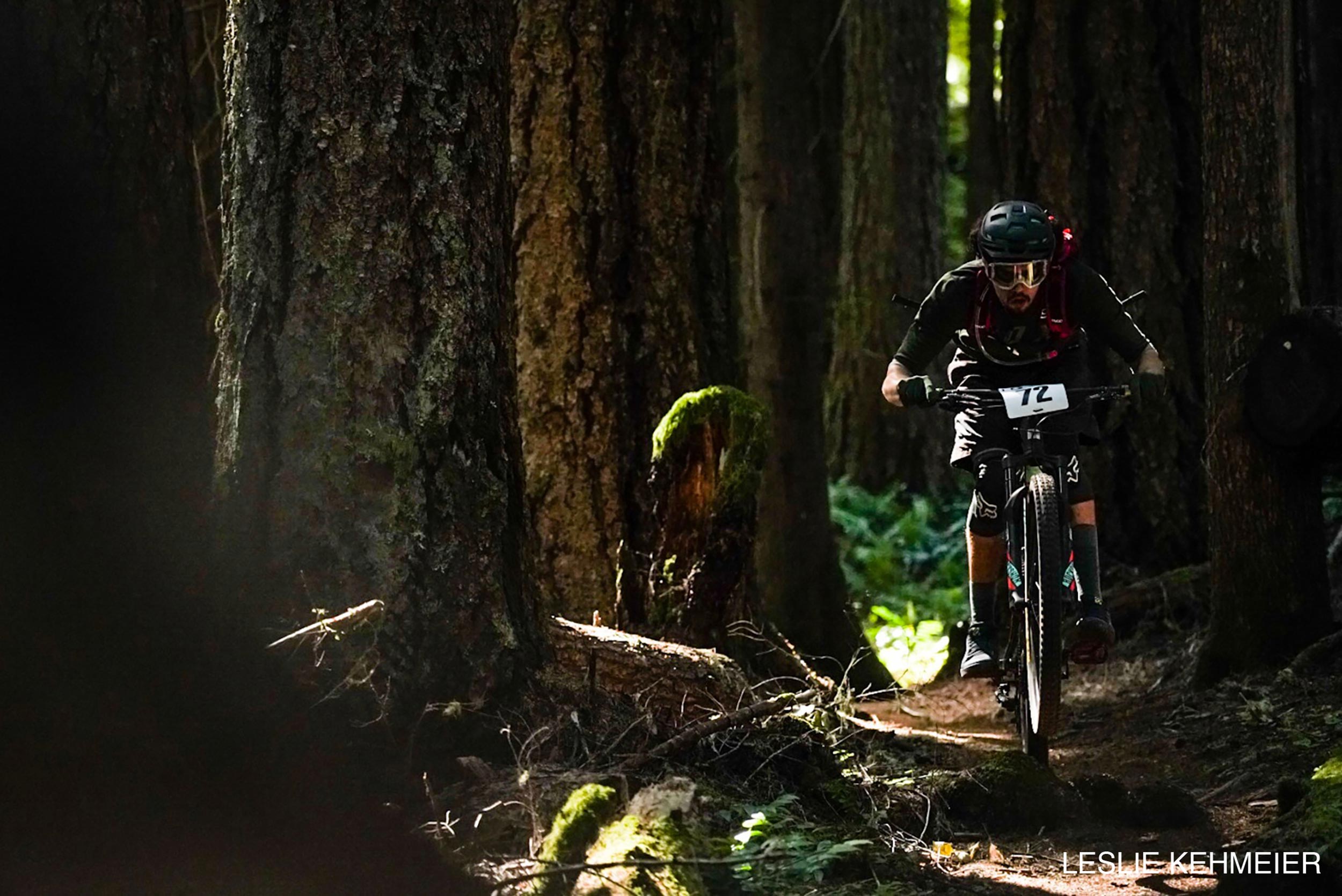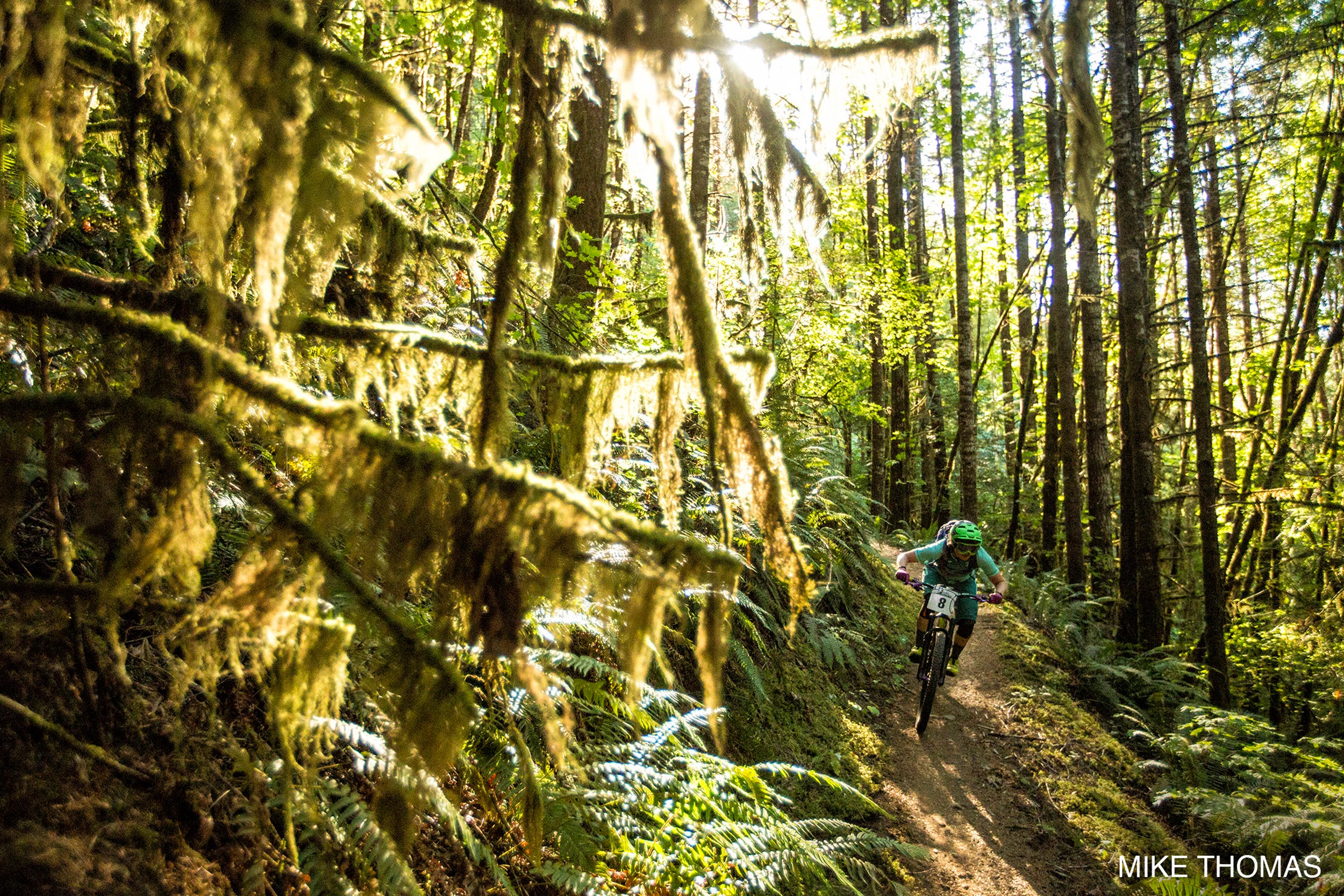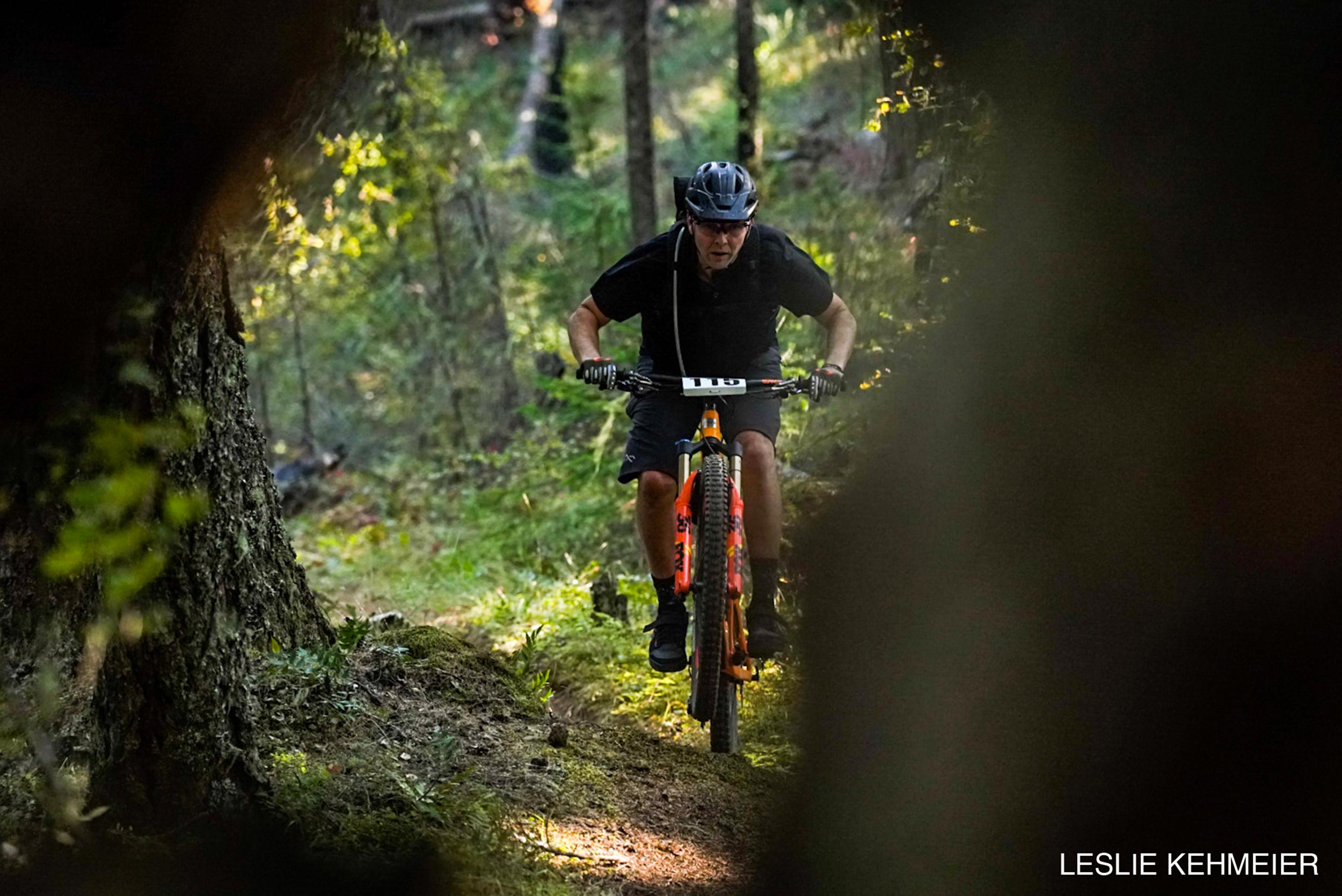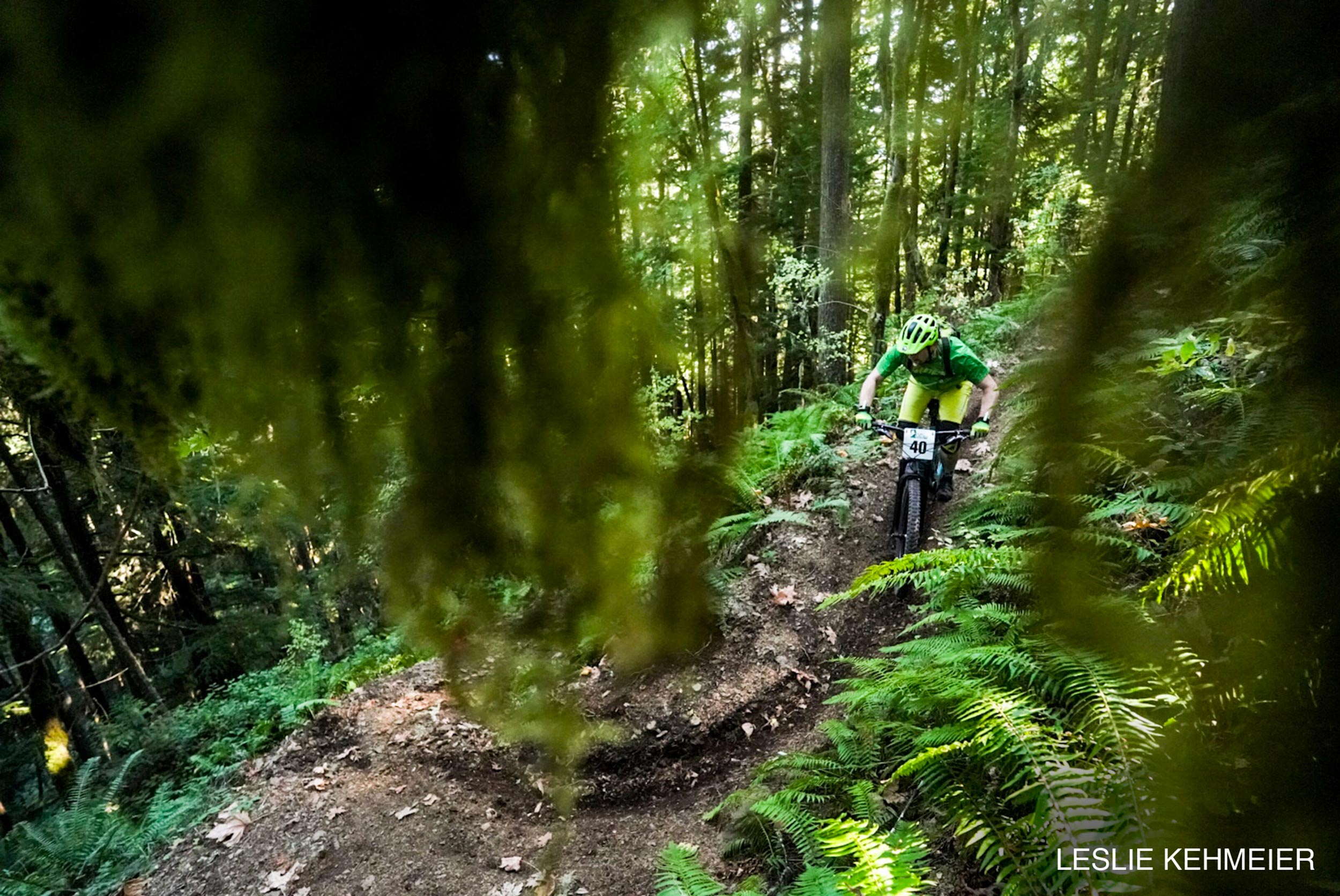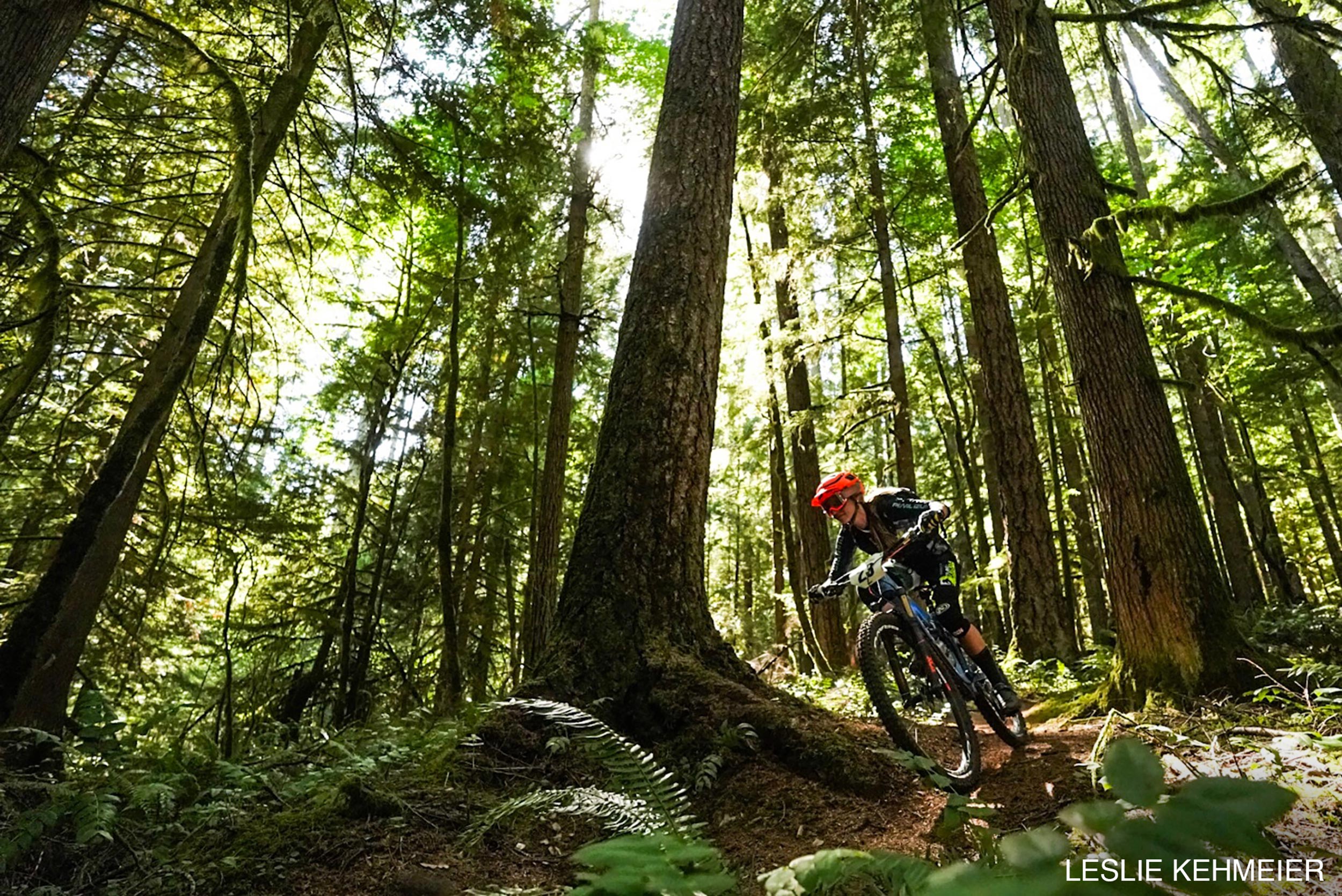2017 Race Report // Day 1
There were plenty of hugs and high-fives as some of the international mountain bike community came together for another year of Trans-Cascadia.
Lots of laughs were had at registration as memories of past events were shared and new attendees got some insight into what to expect for the next few days.
After a successful two years of of the race, the spirit of the event remains the same, however a few key changes have made for an even better racer experience. This year each participant was given an Oakley customized roller bag for their gear, as well as, an MSR plate, utensils, and cup as part of the event’s waste reduction program. And in what became known as ‘the party pocket’ of the suitcase everyone could find a can of beer and a pre-roll (don’t worry, it’s legal in Oregon).
After loading into shuttles and making the two-hour drive to our fist basecamp near Oakridge, racers settled into their pre-setup tents complete with sleeping mats and enjoyed a gourmet dinner by the executive chef at Jack Rabbit in Portland, Chris Dimino.
Following dinner, the event organizers – Alex Gardner, Nick Gibson, and Tommy Magrath – gave racers the run down on what to expect for their first four stages. With prime fall riding conditions, Day One offered up a gentle, but still exhausting, introduction to the race with four stages in the Oakridge area. While the colourful description of the next day’s trails had everyone excited, one descriptor had a few people asking – “what exactly does ice-clay feel like?” Slippery?
This year Trans-Cascadia has introduced ‘Neutral Zones' – these sections are not timed, but are still part of the race. Racers must stay on their bikes and keep riding, but can use the short section to catch their breath and save some energy. As far as rules go, the event organizers simply advised that racers to “try not to dick around too much in the these zones.” The course is minimally signed with only starts and finishes, neutral zones, junctions, and danger areas marked. Everyone was reminded, however, that danger is subjective and to use their heads while racing.
Ben Suttlemyre on the medical team addressed the racers with the wizened tone of backcountry experience that you might expect from a character in an old western film, “if you want to hang it out on that hairy ragged line – just realize it might be the rest of the day before you see a doctor. You’ve gotta have your bike in one piece, you’ve gotta have yourself in one piece, and you’ll have a good time.”
Racers loaded up on shuttles this morning and departed for Lawler. This Oakridge classic is split into two stages to allow riders a moment of reflection on ‘what the hell just happened’ before carrying on. The ride offered up two big descents and a variety of technical features laced through an old growth forest before racers got to finally answer the question – ‘what is ice-clay?’
“It was a very accurate description.” Brian Lopes had forgotten which trail the organizers had warned about, but after hitting the first berm, it all came back to him. “I almost laid it down, my backend came around on me and I was like ‘oh shit, I think this is that icy-clay section they were talking about.’ And it all came to light pretty quick. After hitting that first turn, I was definitely on cautious mode after that. I was very tentative in the rest of the turns.”
A shuttle took racers from the end of Stage 2 to Eula Ridge which some considered to be the best trail in Oakridge. Racers dropped straight into steeps before a neutralized 3-minute climb led them into a flowy and rugged pumptrack style finish.
Kathy Pruitt, who took the overall win today in the Pro Women’s category, experience a bit of a technical issue after dropping into Stage 3. “I started Eula, which is a really steep stage and had a lot of opportunity for me to gain time using my downhill background – and my chain snapped coming out of the first turn. I kind of was like ‘oh my god, this is awful, maybe my race is over,’ and then I realized I could keep coasting.” So she did, and Kathy scooted, ran, and walked the last two stages of the race to take the top step on the podium tonight. “I haven’t snapped a chain in ten years, I don’t know what happened! It added a little spice to my day.”
Larison Rock was the final stage of the day and is a sustained gravity fed run on steep bench-cut trail with fade-away corners. “Love! Capital L O V E. It was just pure fun!" Spencer Paxson was still stoked at the end of the day. "Just like everyone else I liked Stage 3, but Stage 4 surprised me because of the low expectations that people set. A lot of people were saying that it’s skittery and you don’t want to lose your bike because you’ll be looking for it all day, but it was really fast and smooth. Low expectations are the secret to happiness anyway!”
All in, today had nearly 14 miles of shuttle assisted riding and 8773 feet of descending with only 830 feet of climbing.
But racers still felt the effects of the physical style of riding that this area is known for. Returning racer, Rachel Walker, wasn’t expecting to feel so worked – “it felt quite hard today, given that we were on a shuttle day. I’ve spoken to a few of the people who I’m here with and they’re tired. I didn’t expect to be that tired today. The stages were just quite physical and quite long.”
Chris Johnston took the lead in Pro Men, followed by Geoff Kabush; 2016 winner, and Brian Lopes. “I’m super happy to ride and just have a clean day,” says Chris. “The neutral zone definitely helped me out this year, last year was out of my realm of training. And I think it’s a really cool concept having the neutral zones just to coast through and then carry on the stage to make it super long still.” In 2016 Chris chased Geoff Kabush for the entire event, but ended up in 3rd place overall when Peter Ostroski came from behind on the final day and took 2nd place by about two seconds. “It was super fun and a tight competition. I’m sure it will be this year too; it’s only Day One.”
It is Mitch Ropelato’s first year here at Trans-Cascadia and on his first night he managed to earn the elusive Go-Hard jersey. “I felt like I was leading some kind of series,” says Mitch about his early lead. And when asked what he planned to do to maintain his lead, he replied, “I don’t think you can try, one of these nights I’m going to have to got to bed early and I’m going to lose the jersey, but we’ll see. Definitely Sunday though, I’ll be saving up for a good party after this!”
The racing will continue in the Oakridge area tomorrow before the event heads on to its next basecamp.


